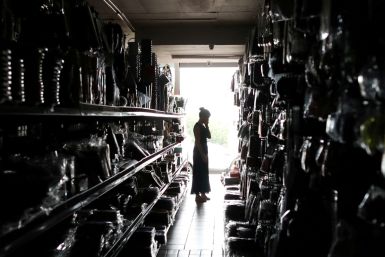South Africans Vote With ANC Rule In Balance
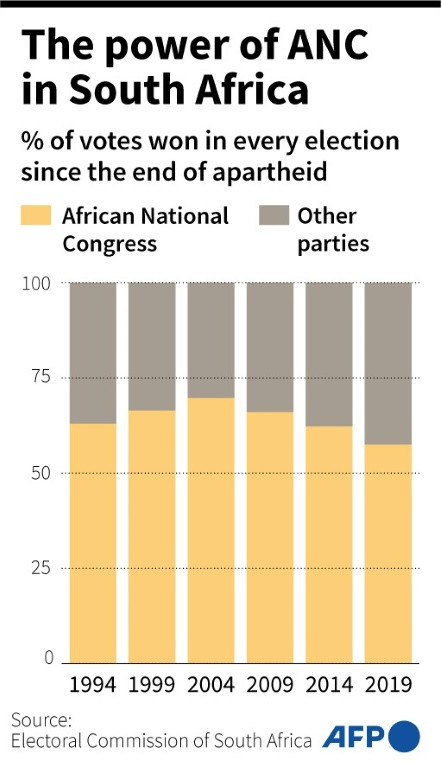
South African voters turned out for a watershed general election Wednesday, with the ANC's exclusive grip on power in doubt for the first time in three decades of democracy.
More than 27 million voters were registered for the most uncertain poll since the African National Congress (ANC) led the nation out of apartheid rule.
With opposition challenges from both the left and right, unemployment and crime at near record levels and a new generation growing up with no memory of the struggle against white-minority rule, the ruling party may need to share power.
In Soweto, the former black township that became the unofficial capital of the liberation battle, elderly ANC loyalists turned out early, but as the queues lengthened there were signs of disillusionment with the party.
Kqomotso Mtumba, a 44-year-old bank official, sporting burgundy and black beaded braids, said she had voted ANC in the past but had now chosen an "upcoming party" whose manifesto had impressed her.
"The last party I voted for, their promises didn't work out so I'll be trying this one," she said.
In the working-class Johannesburg district of Alexandria, even public sector workers like a young woman who gave her name only as "Keletso" were frustrated.
"I really need to see change," the 34-year-old said, wearing a pink house robe and slippers with a bunny-ears hoodie.
"We need new people, fresh blood. Unemployment is bad. To put bread on the table some people do crime, others become prostitutes."
In Nkandla, in the volatile eastern province of KwaZulu-Natal, some voters were confused by the new voting system -- for the first time, three ballots, two for the National Assembly and one for the provincial assembly.
"There was a moment I was confused. I had to ask for help and explanation," admitted 70-year-old Cynthia Ntshangase.
Voters will choose the 400 members of the National Assembly who in the coming weeks will then choose a president from among their number.
For the first time since the advent of democracy in 1994, the ANC could be forced to negotiate a coalition in order to remain in government.
"South Africa's general election is a watershed moment in the political history of the country," said Aleix Montana, an analyst at risk intelligence company Verisk Maplecroft.
Under the leadership of the late Nelson Mandela, the ANC won freedom for black South Africans after decades of apartheid, then lifted millions out of poverty by creating a broad social welfare system.
But many in the country of 62 million are fed up with high unemployment, currently at 32.9 percent, rampant crime, corruption scandals, and regular power cuts and water shortages.
The economy grew a meagre 0.6 percent in 2023.
President Cyril Ramaphosa, who is seeking a second term, defended his record in a speech to the nation on Sunday, citing progress in fighting graft and fixing gaps in electricity production among other successes.
"We cannot afford to turn back. There is more work to be done," the 71-year-old said.
He has also promised to usher in universal credit and push ahead with plans to provide health coverage.
But polls suggest the ANC could win as little as 40 percent of the vote, down from 57 percent in 2019.
If the ANC wins fewer than 201 seats, Ramaphosa would have to negotiate with opposition parties and independent MPs to secure a majority. It could face stark choices.
On the right, it is challenged by the Democratic Alliance (DA), which has vowed to "Rescue South Africa" through clean governance, privatisation and deregulation but has struggled to shake off its image as a party for the white minority.
Polls put its support below 25 percent.
On the left, it is bleeding support to former president Jacob Zuma's uMkhonto weSizwe (MK) and Julius Malema's Economic Freedom Fighters (EFF), which are pushing for land redistribution and nationalisations.
Polls estimate the two parties are tied at around 10 percent.
Once an ANC stalwart, Zuma fell out with his old party after being forced out of office under a cloud of corruption allegations in 2018.
He has been barred from standing as an MP because of a conviction for contempt of court, but remains extremely popular in KwaZulu-Natal, his home province.
In Zuma's hometown Nkandla, call centre worker and teaching student Nokuthobeka Ngcobo, 26, declared she was "so happy" to have voted MK.
"I'm voting for them because I want change... and I have hope that Zuma and the MK will bring change," she said.
Full results are not expected before the weekend.
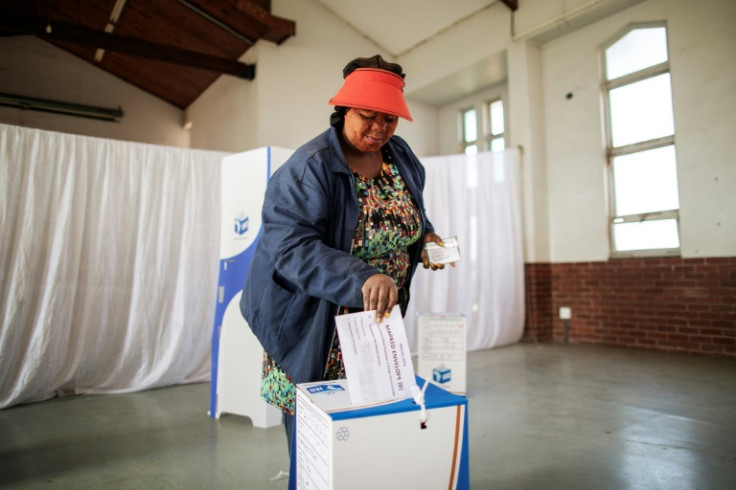
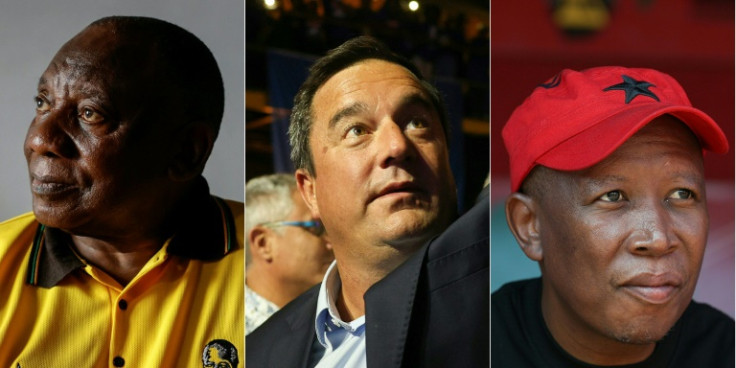
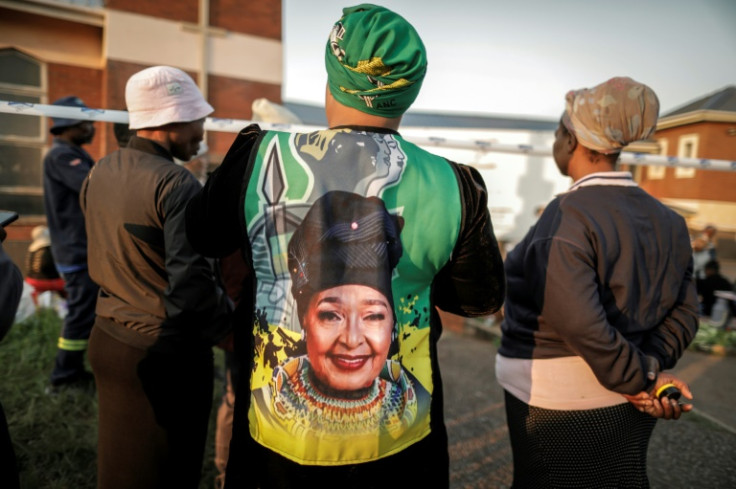
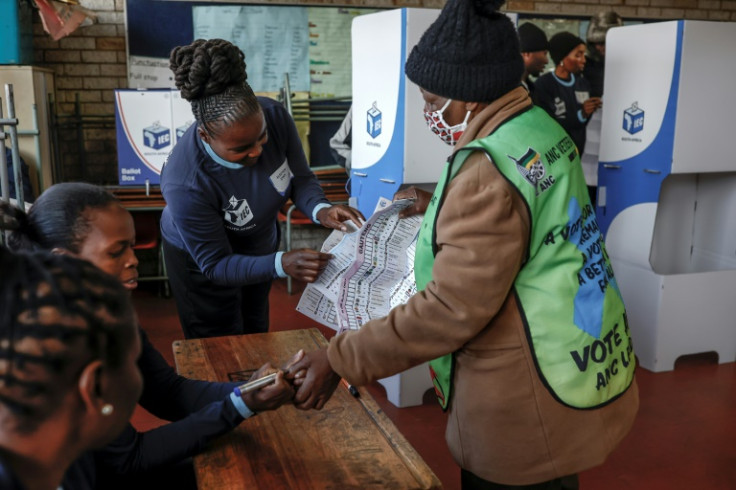
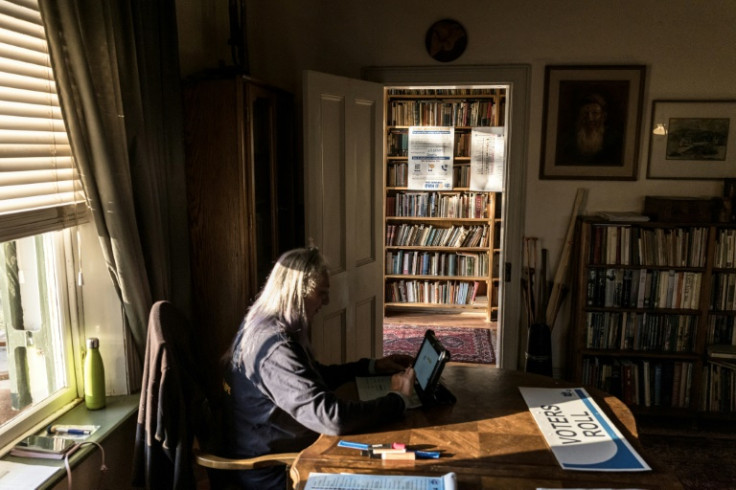
© Copyright AFP 2025. All rights reserved.














